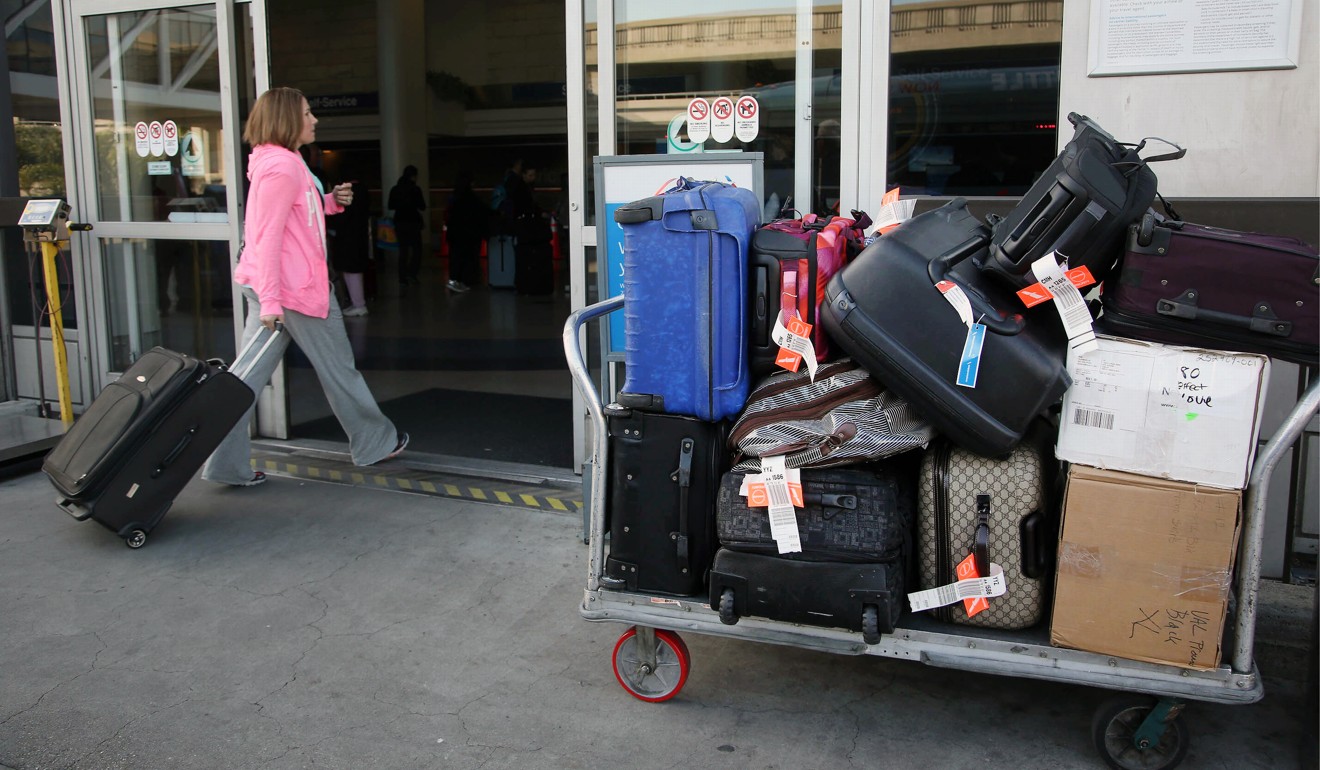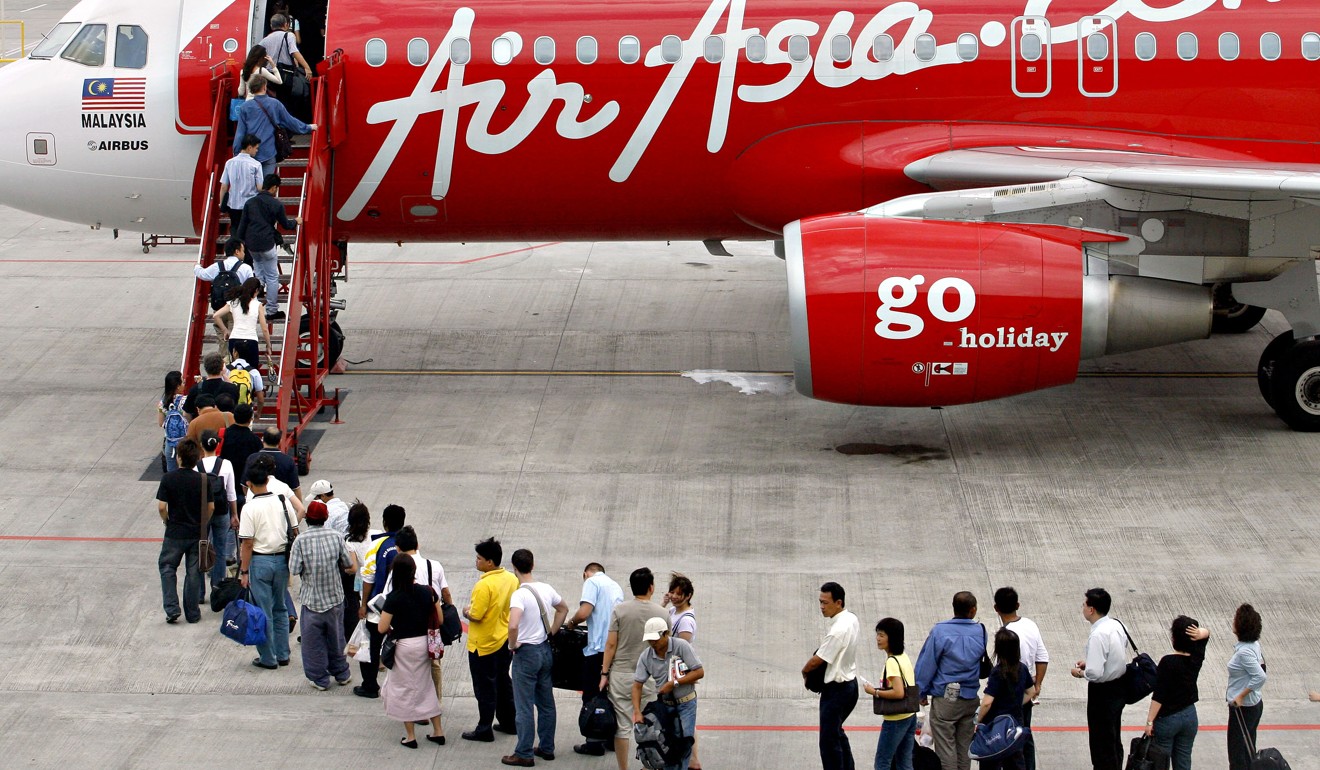
When it comes to airports and baggage handling, Asia is miles ahead of the rest of the world
- The world’s airlines mislaid only 24.8 million bags last year, which is still 24.8 million too many. Fortunately, in Asia, with its modern airports, the mishandling rate is significantly lower than in Europe

Of all the pain points along the stress chain that some people call an air journey, perhaps the worst is that awful, lonely moment in front of an empty baggage carousel when you have a sinking feeling that your suitcase hasn’t arrived.
Just at the most exhausting point in the journey, with the unfriendly prospects still ahead of immigration harassment and a long wearisome train or taxi ride through an unfamiliar city to a bland hotel, a black hole opens and swallows you whole. There will be no avoiding the traipsing through dingy corridors and filling of mind-numbing forms, with nothing but the clothes you are standing in. Not even a toothbrush. At that point you don’t even think about the painful months ahead of trying to get compensated.
I have felt this pain more often than I am willing to recount. It is one of the reasons I avoid LAX with a vengeance. I am sure the airport code for Los Angeles International actually stands for “Luggage Arrived – Not”.
So, with a long journey to Britain imminent, and the packing still to be done, I read with mixed emotions last week’s good news from air transport technology specialist SITA that the world’s airlines mislaid just 24.8 million bags last year.
Yes, just 24.8 million – because back in 2007, they were mishandling 46.9 million bags a year, and in the past decade the number of people flying has almost doubled.

To be fair, that is a significant improvement. And with the International Air Transport Association (IATA) recently adopting Resolution 753, which requires the world’s airlines to reduce mishandling by tracking baggage from start to finish, there is good reason to expect further improvement over the next few years.
The odds on losing your bags are shrinking, and they are already quite small. According to SITA, 4.36 billion passengers checked in more than 4.27 billion bags in 2018, of which 5.69 bags were mishandled every 1,000 passenger journeys.
On the back of an envelope, that means we could still lose a bag on average every 200 or so journeys. For a hectic merchant banker shuttling across the Asia-Pacific 30 times a year, that means he or she could lose a bag once every seven years. For my relatives in Britain who fly two or three times a year for a beach holiday, that means they would be unlucky to lose a bag in 20 years.
But this crude calculation ignores the vast differences between airlines, and airports. Travellers in Asia, which accounts for 1.5 billion, or 36 per cent, of the world’s passengers, according to IATA, suffer significantly less than travellers elsewhere. Compared with the global average of 5.69 bags mishandled per 1,000 travellers, the average for Asia is 1.77, roughly a third. (By this reckoning, our hectic banker would only be losing a bag every 21 years.) The worst served are travellers in Europe, where a combination of old, small airports and the minimal introduction of technology like radio frequency identification, or RFID, tags means more than seven bags are mishandled every 1,000 passengers.
If you dare brave the highest risks, try Port Harcourt airport in Nigeria or Simon Bolivar airport in Venezuela. And the worst performing airlines include Cebu Pacific, South African Airlines – and even Emirates (which also has the reputation of being reluctant to compensate for losing bags).

Perhaps unsurprisingly, the best airports and airlines are those that have thrown money and tech support behind baggage tracking, in particular RFID tagging. In a report on TheTravel site last summer, airlines including Qatar Airways, Alitalia, Lufthansa, Delta and Cathay Pacific rank high. A surprise inclusion is Russia’s Aeroflot, which now provides real-time location tracking for all the bags it handles. Asia’s modern, hi-tech airports are fine, while creaking US airports like JFK and my beloved LAX have a way to go.
And just so we are clear: SITA says few of the bags are truly “lost”. Of all mishandled bags, 77 per cent are delayed, 18 per cent are damaged and just 5 per cent are lost or stolen. Almost 90 per cent of delays are due to four reasons: mishandled transfers, failure to load, ticketing errors, and airport, customs or weather problems. But my response, standing in front of the empty carousel, would be: the news that my bag will at some point in the coming days catch up with me provides little comfort.
My savviest traveller friends point to a number of things you should do to minimise risk: first, avoid checking in luggage if possible and instead rely on hand baggage; simplify long journeys and minimise transfers; always make sure your name and contact details are somewhere on the outside of the case, and also inside. Other obvious warnings: never put anything truly valuable in your check-in bag; always have a simple change of clothes in your carry-on bag; and get insurance if you want to be compensated properly. Most airlines drag their feet interminably, and have strict limits on what they are willing to pay.
Much of the pain and trauma linked with lost luggage is not the fault of airlines alone. There can be many reasons why you and your luggage tend not to leave Los Angeles together. But airline marketing and advertising agencies do us all a gross disservice by concocting stories of bliss and transcendent relaxation on our flights around the world. The sooner they acknowledge the pain and stress at almost every stage of air travel, the sooner the credibility of the world’s favourite airlines will recover from their current low levels.
For those of us lucky enough to live in Hong Kong, where half the world is within five hours’ distance by flight and we can often rely on carry-on bags, the angst about lost luggage may not loom so large. But with about 25 million bags still mislaid every year, there will always be that anxious moment when you see the first bags tumbling onto the airport carousel.
David Dodwell researches and writes about global, regional and Hong Kong challenges from a Hong Kong point of view